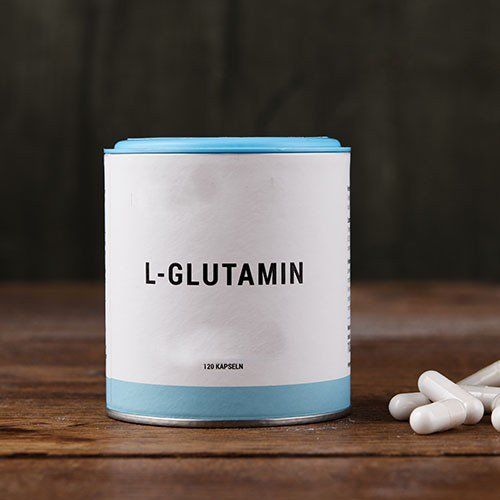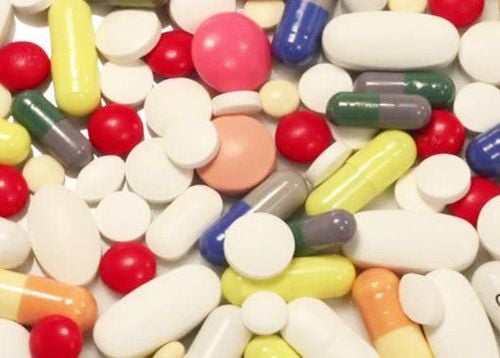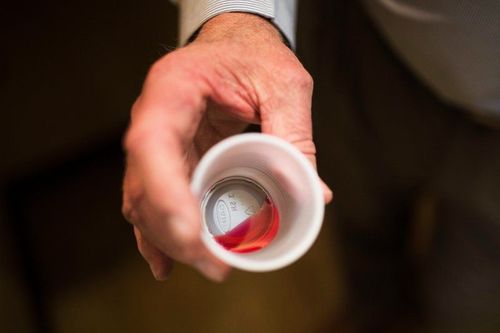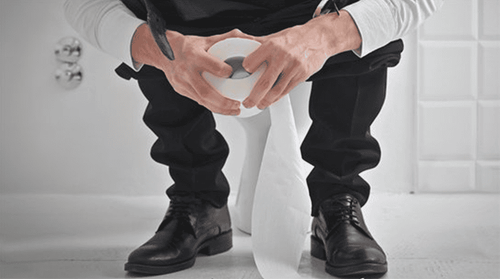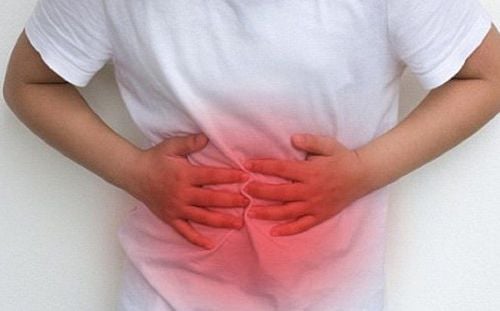This is an automatically translated article.
Post by Master, Doctor Mai Vien Phuong - Department of Examination & Internal Medicine - Vinmec Central Park International General Hospital
Transplanting the gut microbiome (in the stool) from a healthy subject with normal bowel function to the patient - known as a fecal microbiota transplant (fecal microbiota transplant) - times It was first applied by Chinese physician Ge Hong in the fourth century to treat severe diarrhea and malaria. In the present era, fecal microbiota transplantation represents an effective treatment for Clostridium difficile infection (CDI) and also a promising invention for other diseases.
The use of fecal microbial transplantation as a treatment for IBS has been studied in seven randomized controlled trials (randomized controlled trials), which have produced mixed results.
1. Changes in bacterial spectrum and distribution of bacteria after inoculation of microorganisms in feces
In the randomized controlled trial by El-Salhy et al in which fecal microbiota transplantation was most effective, dysbacteriosis severity was not significantly different between placebo and control groups. positive treatment after 1 month, but it decreased significantly after 1 year. One month after fecal microbiota transplantation, the microbial profiles were significantly changed in the intensively treated groups compared with the placebo group. Higher signal for Eubacterium biforme, Lactobacillus spp. And Alistipes spp., and lower signal for Bacteroides spp. was observed at 1 month after fecal microbiota transplantation in the intensively treated groups but not in the placebo group. The IBS Severity Scoring System (IBS-SSS) was significantly correlated with the signals of Lactobacillus spp. ( P = 0.002, r = –0.3) and Alistipes spp. (P = 0.001, r = –0.3) but not with that of Eubacterium biforme (P = 0.754, r = 0.03) or Bacteroides spp. (P = 0.458, r = 0.06). The signals of the nine bacteria changed at 1 year after fecal microbiota transplantation (unpublished data): While the signals of Bacteroides spp., Prevotella spp., Alistipes spp., Bacteroides stercoris, Parabacteroides spp. and Bacteroides zoogleoformans was significantly higher than at baseline, the signal of Streptococcus salivarius ssp. thermophilus, Shigella spp., Escherichia spp., Eubacterium hallii, and Dorea spp. significantly lower than baseline. The signals of the following six bacteria were correlated with the total IBS-SSS score: Bacteroides spp. And Prevotella spp. (P < 0.0001, r = -0.4), Alistipes spp. (P < 0.001, r = -0.3), Bacteroides stercoris and Streptococcus salivarius ssp. thermophilus (P < 0.0001, r = 0.3), Bacteroides zoogleoformans ( P < 0.002, r = -0.3) and Eubacterium hallii ( P < 0.04, r = -0.2) (data not yet available). to be announced). Changes in the microbial profile in IBS patients receiving fecal microbiota transplants have been documented, but which bacteria have been altered has not been described in detail.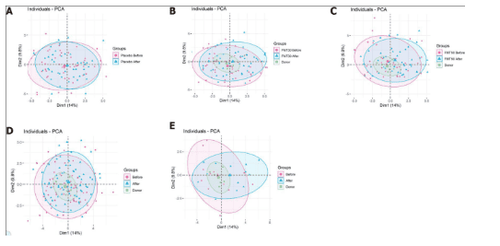
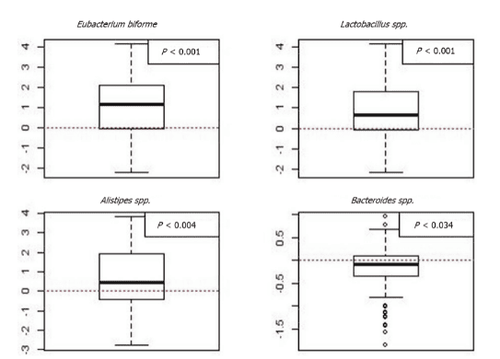
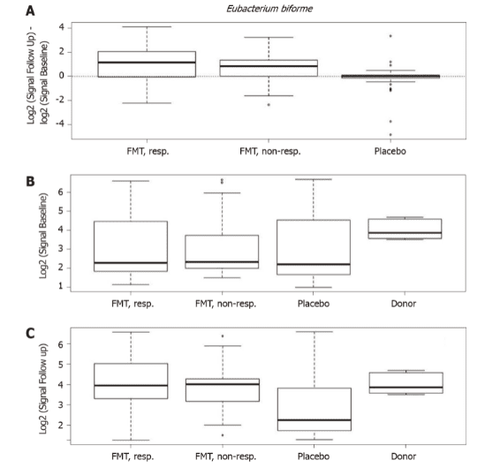
2. Safely transplanting microorganisms in stool
A recently published consensus report from a European Union Multidisciplinary Working Group on Gastroenterology did not classify voluntary fecal (fecal) material as a drug. Instead, it is recommended to collect, process and use in accordance with the standards defined by the EU Commission in the EU Tissue and Cell Directive 2004/23/EC Transplantation of microorganisms in feces has shown Safe, few side effects. The short-term adverse events for fecal microbial transplantation in IBS patients have been reported to be mild, self-limited and occurring within the first few days after transplantation: Abdominal pain, cramping, pain, diarrhea and constipation. However, infectious complications were described in two patients who received fecal microbiota transplantation for conditions other than IBS, resulting in one death. While these patients were elderly, critically ill, and immunocompromised, such events have raised questions about the safety issues associated with fecal microbial transplantation for IBS, particularly IBS is considered a benign digestive condition. It is therefore proposed that screening of fecal transplant donors include testing their stool for extended-spectrum beta-lactase-producing E. coli and respiratory syndrome coronavirus Severe acute respiratory tract infection 2. This would reduce the risk of infection and limit the selection of IBS Patients for fecal microbial transplantation to those who are not immunocompromised and do not have systemic disease or disease heavy. No adverse effects were observed 1 year after fecal microbiota transplantation in IBS patients (unpublished data). However, patients who are monitored for fecal microbiota transplantation for long-term CDI have raised some concerns about weight gain, development or worsening of IBD, cancer, autoimmune disease, and more. allergies and neurological diseases
Conclusion
Fecal microbiota transplantation is an age-old Chinese treatment applied to both gastrointestinal and extra-gastric diseases, and is now also a A promising treatment for IBS patients as it improved IBS symptoms, fatigue, and quality of life in approximately 90% of patients in a randomized controlled trial. However, there are still a number of questions that need to be answered and further investigation is required before fecal microbial transplantation can be applied in clinical practice. The criteria to apply when selecting an effective fecal donor for fecal microbial transplantation (superdonor) are still unclear, as are the optimal dosage, route of administration and frequency of treatment. Furthermore, it remains unclear whether fecal microbiota transplantation is effective for all IBS patients, or whether it should be restricted to certain groups of IBS patients. There is also some concern about the long-term side effects of fecal microbial transplants. There is an exciting task ahead of us to modernize an effective treatment for IBS that was first used over a thousand years ago.
Please dial HOTLINE for more information or register for an appointment HERE. Download MyVinmec app to make appointments faster and to manage your bookings easily.
References El-Salhy M, Patcharatrakul T, Gonlachanvit S. Fecal microbiota transplantation for irritable bowel syndrome: An intervention for the 21st century. World J Gastroenterol 2021; 27(22): 2921-2943 [DOI: 10.3748/wjg.v27.i22.2921]





